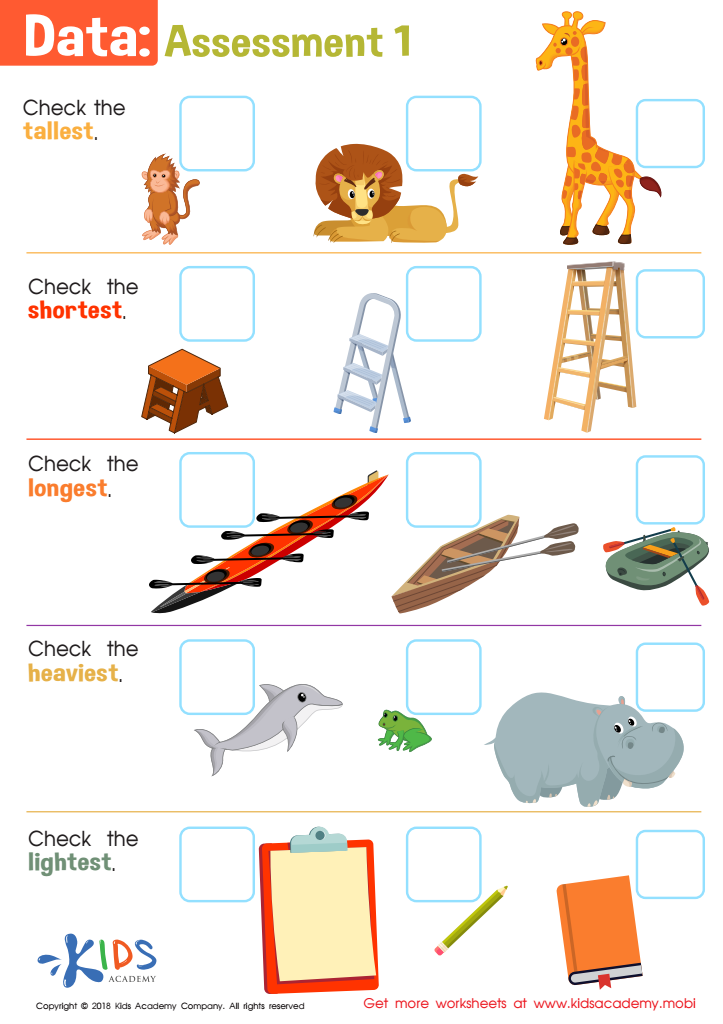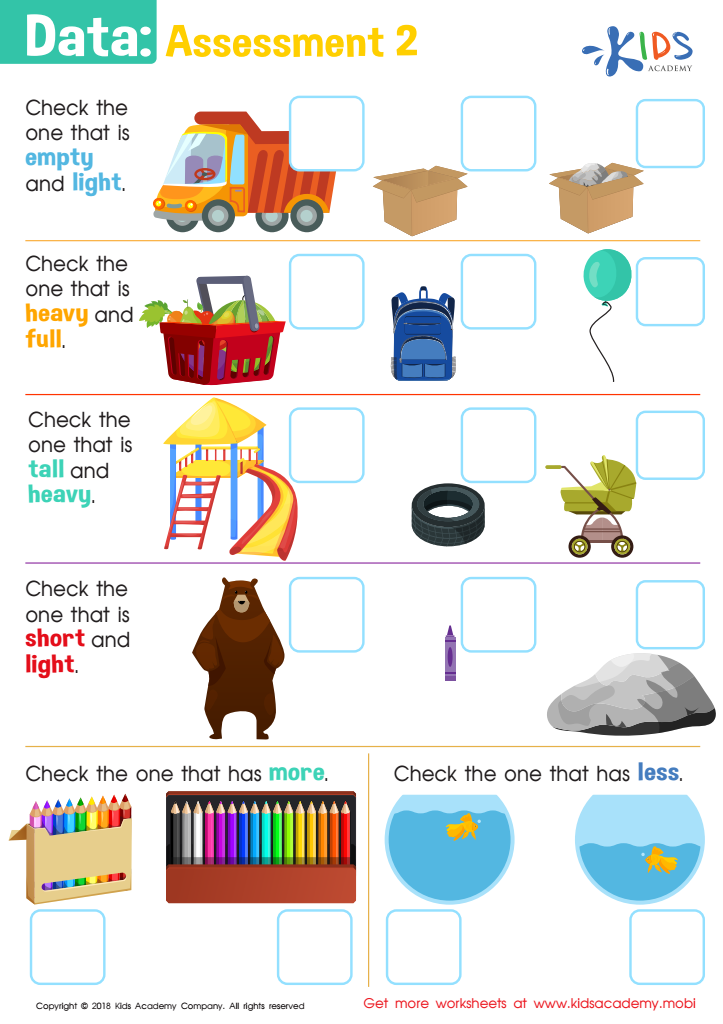Measurement worksheets activities for Ages 4-6
2 filtered results
-
From - To


Data: Assessment 1 Worksheet


Data: Assessment 2 Worksheet
Measurement worksheets activities are an invaluable resource in educational settings, playing a critical role in enhancing students' comprehension of measurement concepts. These activities are specifically designed to provide learners with practical and interactive experiences that significantly contribute to their understanding of measuring various physical quantities such as length, weight, volume, and temperature. One of the primary reasons why measurement worksheets activities are so beneficial is that they introduce students to real-world applications of measurement, making the learning process not only educational but also engaging and relevant.
By engaging in measurement worksheets activities, students develop critical thinking and problem-solving skills. They are encouraged to apply mathematical operations and reasoning in real-life scenarios, fostering a deeper understanding and retention of measurement concepts. This hands-on approach helps demystify abstract concepts, making them more accessible and easier for students to grasp. Furthermore, measurement worksheets are designed to cater to different learning styles. Whether a student prefers visual, auditory, or kinesthetic learning, worksheets can be tailored to meet these diverse needs, ensuring that every student has the opportunity to succeed.
Another significant advantage of measurement worksheets activities is their adaptability to individual and group settings. They can be customized to suit various educational levels, from simple tasks for beginners to more complex problems for advanced learners. This flexibility ensures that students are challenged according to their ability, promoting a sense of achievement and encouraging continuous learning.
Moreover, measurement worksheets activities facilitate immediate feedback. As students work through these activities, they can quickly ascertain their understanding of the concepts, identify areas of difficulty, and seek help as needed. This immediate feedback loop is crucial for effective learning, as it allows for timely intervention and support, ensuring that students stay on track in their learning journey.
In conclusion, measurement worksheets activities are an essential tool in education. They provide a practical, engaging, and adaptable method for teaching measurement, fostering not only academic success but also a lifelong appreciation for the application of measurement in everyday life.
 Assign to the classroom
Assign to the classroom











